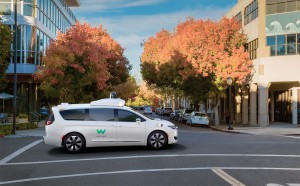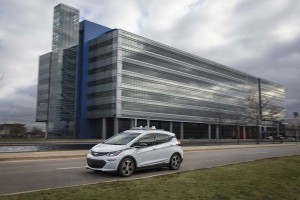The National Highway Traffic Safety Administration will no longer need to determine if a petition complete to issue summary for public comment, hoping to accelerate the process for getting autonomous vehicles on the road.
The agency cut the requirement wanting to improve “the efficiency and transparency of the process to focus on the safety review,” according to Reuters. Now the agency can zero in on the safety of a vehicle without a driver or steering wheel and brakes.
Automakers currently meet nearly dozens of auto safety standards, often based on the assumption that a licensed driver would be able to control the vehicle using traditional human controls, Reuters noted.
Currently, automakers can ask for 2,500 vehicles to be exempted from vehicle safety standards as long as they are as safe as today’s vehicles.
(Waymo kicks off autonomous taxi and ride-share service. Click Here for the story.)

Waymo's modified Chrysler Pacifica Hybrid minivan is now in service as an autonomous ride-sharing vehicle.
The current rules have crimped the approvals sought by automakers, such as General Motors. Last January, the company petitioned NHTSA for an exemption for a ride-sharing fleet it wants to test in 2019. The agency hasn’t ruled yet if the petition is complete because the vehicles won’t have drivers or human controls.
Conversely, Waymo launched its autonomous ride-hailing service in Arizona already. Unlike GM’s planned fleet, Waymo’s minivans have drivers and human controls. Eventually the safety drivers will be removed.
(Click Here for more about GM’s plans for a fleet of driverless robo-cabs.)
In addition to the updated process, NHTSA also noted today it was seeking comment on the use and integration of vehicle communications technologies. The agency said these technologies could improve motor vehicle safety and efficiency and support cooperative vehicle automation concepts.
The U.S. Transportation Department said it intends to “maintain the priority use of 5.9Ghz spectrum for transportation safety communications” despite the push by some in the Federal Communications Commission to reserve the spectrum for personal wireless communications.
(To see more about the “lack of trust” in self-driving tech, Click Here.)
The Obama administration proposed requiring all new vehicles to be able to communicate with each another using short-range wireless technology, ideally avoiding thousands of crashes annually. The Trump administration has not acted on the proposal, Reuters reported.

